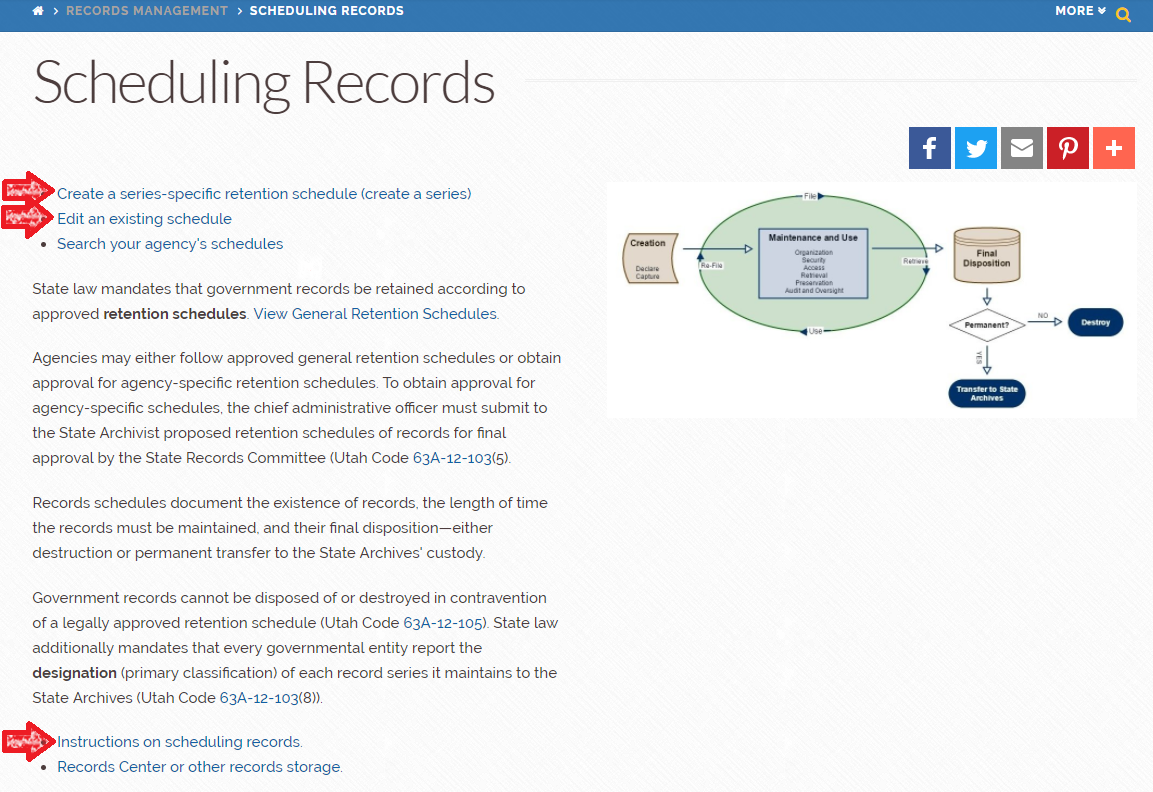
|
Records Management Essentials |
Home  Records Management Essentials
Records Management Essentials  Section 3
Section 3  3.6. Update and add to your retention schedules as necessary
3.6. Update and add to your retention schedules as necessary
3.6. Update and add to your retention schedules as necessary
Editing an existing retention schedule or creating a new series-specific retention schedule can be accomplished with the assistance of a RIM specialist employed at the State Archives. It is a good idea to contact a RIM specialist early in the process of updating your schedules in order to receive guidance and avoid wasted effort. Also, before creating a new series-specific retention schedule, review your agency’s existing schedules, reading the record descriptions, to ensure that the records have not previously been scheduled.
Instructions for editing or creating a new retention schedule, as well as the necessary online form for doing so, can be found on the Utah State Archives website, as shown below.

Once you have submitted a form in order to edit an existing series-specific retention schedule or to create a new series-specific retention schedule, a RIM specialist at the State Archives will receive and review the information and may contact you in order to clarify or garner additional information.
Retention schedules have multiple objectives. Schedules provide legal authority for records retention, assist records officers in the practical management of records, inform the public, promote government transparency, and aid members of the Archives’ staff as they work with the records. As a result of serving multiple audiences, descriptions of scheduled records are extremely important components of retention schedules, and can be difficult to write. The records description should identify the records in a summary that is understandable to someone who is unfamiliar with the records and their function. The description should answer questions such as: what government functions do the records document, how are the records used, and what information is contained in them? As a records officer you are in a unique position to understand your records, and the information that you supply to the State Archives and the general public is invaluable.